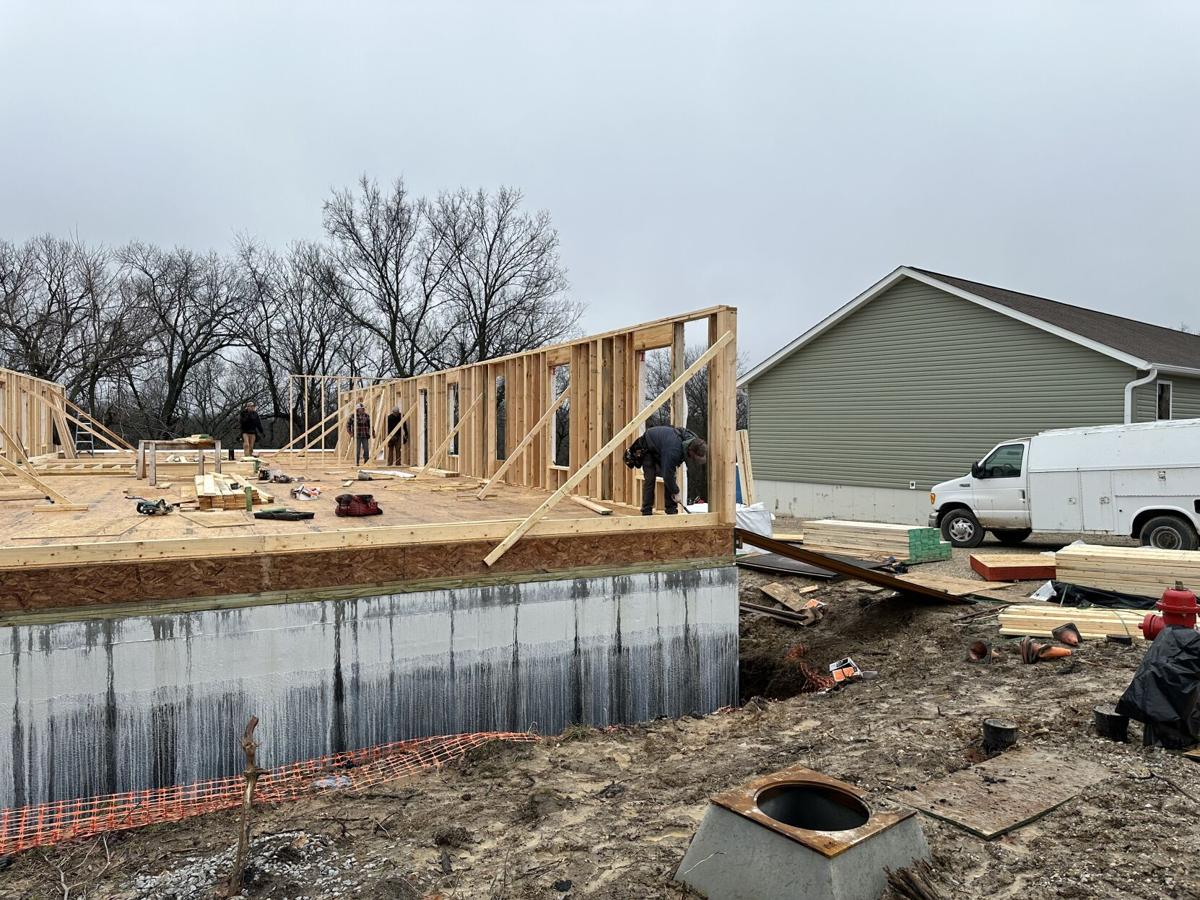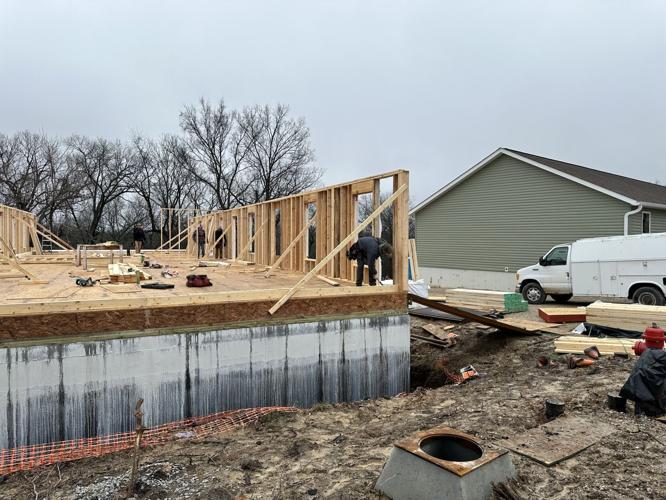PEACEFUL VILLAGE, Mo. — Until the bulldozers show up in the backyard, a lot of folks don’t pay much attention to the nitty-gritty operations of their government. So it was for Jon Jerome.
Jerome is president of , a nonprofit that helps veterans and their families. He lives in the High Ridge area of unincorporated Jefferson County. His property butts up against one of the most unique governmental bodies in Missouri: Peaceful Village, created in 2008.
The tiny village was the inspiration of Jack Walters, who built a church and Christian children’s camp on 78 acres he owned along Antire Road.
In 2007, the Missouri Legislature had passed a controversial law, supported by former Speaker of the House Rod Jetton, to help a wealthy donor create his own village. The donor wanted to bypass building and zoning regulations in southwest Missouri. The short-sighted law was repealed a year later, but dozens of landowners across the state had already tried to take advantage of it. Walters’ village was created by a 2-1 vote of the Jefferson County Commission in September 2008, before the repeal took effect.
People are also reading…
The commissioner who voted “no,” suggesting the village was unconstitutional, issued a prophetic warning.
“I think it’s bad public policy,” Chuck Banks said. “Jack may be a great person, but you never know who will come next.”
Dan Ross Jr. is who came next. Ross is pastor of New Hope Fellowship Church, which now operates in the cross-shaped church that Walters built. Ross bought the property — and village — from Walters in 2015. He and his son are trustees of the village, along with other family members and people who attend the church. The church and the village are intertwined.

Jon Jerome in the warehouse of Heroes Care, a veterans’ nonprofit that he runs.
This brings us to the bulldozers in Jerome’s backyard.
Last July, he noticed a permit posted on the property next to his. He called the number on the notice, and it wasn’t in service. He called the county and was told he had to talk to the village. But nobody seemed to have any contact information.
By December, when the bulldozers had dug right up to his property line, and dangerously close to Antire Road, Jerome sent an open records request to Ross at the church. He wanted city permits for the property, building codes, contact information, meeting minutes and more.
On Dec. 20, Ross, the pastor and trustee, responded. Yes, he wrote, Jerome can have the documents — if he forks over $4,500.
This is an all-too-common tactic by government officials seeking to hide public documents. It’s also illegal. Jerome alerted the attorney general’s office, the Missouri Ethics Commission and anybody else he could think of. Meanwhile, the building continued.
None of this made sense to Jerome. How could one family, connected to a church, approve their own building permits for a project without any oversight?
Jerome figured the only way to fight this particular City Hall was to get rid of it. So late last year, he found some residents — there’s a mobile home park and some retirement homes in the village limits — to sign a petition to dissolve Peaceful Village. In late December, the Jefferson County Commission unanimously accepted the petition. A vote . It will be contested among the 67 registered voters in the village.
Ross is unapologetic about his project. He is building two residential care facilities — sober homes, he calls them — that will be run by a nonprofit he created, Cedar Oak. Over the past couple of years, Ross has battled with Jefferson County as he tries to build facilities to help the homeless population.
“The county has shut us down at every turn,” he says. The sober homes are being built in the village “so we don’t have to deal with Jefferson County.”
And there is a need for such facilities in Jefferson County, Ross argues.
“The people in Jefferson County who have addiction issues have to go live in St. Louis because there’s no sober houses here,” Ross says.
Ross says at least some of the people in the sober facility will be “graduates” from another nonprofit he leads — — a Christian-based drug treatment home that is also on the church’s property in Peaceful Village.

Ross
Here’s where a timeline of overlapping events helps sort through the complaints Ross is now facing.
In 2020, Ross started a real estate investment company, called BRR Investments.
Around that time, during the COVID-19 pandemic, New Hope Fellowship became one of the top recipients of federal money intended to get food to children, at schools and elsewhere. From 2020 through mid-2022, New Hope Fellowship claimed about $22.5 million through the program. The church has said it was serving 30,000 hot meals a week at the height of the pandemic, trucking food to partner sites across Missouri.
The food program has drawn the attention of federal investigators, who have charged at least one nonprofit leader for allegedly skimming money for personal financial gain.
Ross says that hasn’t happened with his church, although a state audit of the program in 2020 raised questions about $400,000 in bonuses that hadn’t been approved by the state. A 2021 audit questioned some of the financial accounting procedures of the church but raised no more issues regarding the bonuses.
Also in 2020, Ross’ newly formed real estate company started buying several Jefferson County properties, including the land in Peaceful Village where the sober homes are being built. Around that same time, Ross also remodeled his home, according to county records. It’s in nearby Byrnes Mill. Ross, despite being a trustee in Peaceful Village, doesn’t live in the village.
All of those connections among businesses, nonprofits, a church and a government body — all tied to one person — don’t sit well with at least one neighbor.
“It’s frustrating,” Jerome says.
Every time he went to a government entity that he thought could help with his questions — the county, the fire district, the attorney general — they all seemed to suggest his only option was to file a lawsuit.
“How is any of this legal?” he asks.
It’s a fair question. The voters of Peaceful Village will answer it in April.
������Ƶ metro columnist Tony Messenger discusses what he likes to write about.















